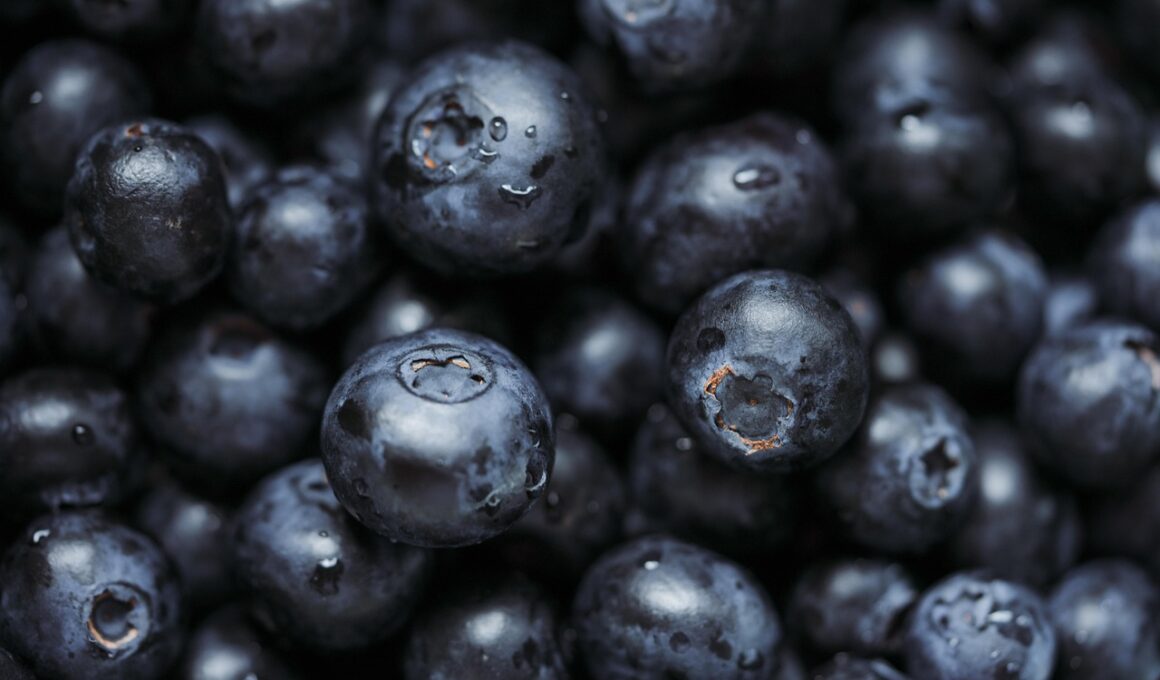The Truth About Superfoods: Separating Fact from Fiction
Superfoods are often touted as miracle foods that can drastically improve your overall health. This can lead to the misconception that consuming these foods will automatically result in weight loss, enhanced energy, and improved vitality. While many superfoods are packed with nutrients, it’s essential to understand that they are not magic cures. Achieving optimal health involves a balanced diet, regular exercise, and a healthy lifestyle. Superfoods like kale, blueberries, and quinoa do provide impressive health benefits, yet they should complement a variety of other foods for the best results. It’s worth noting that incorporating superfoods into your diet can support your wellness journey, but they should not be the sole focus. Consider combining different food groups and engaging in an active lifestyle to maximize your health. The key is balance and moderation; just because a food is labeled as a superfood does not mean it replaces the need for other essential nutrients. Being educated about these foods allows you to make better choices that benefit your health in the long run. Remember, no single food holds the key to optimal health or longevity.
Another common misconception regarding superfoods is that they are exclusively exotic and expensive items that come from far-off lands. In reality, many superfoods are everyday ingredients found in your local grocery store or farmer’s market. For example, foods such as spinach, beans, and nuts can be classified as superfoods due to their high nutrient density. These affordable options provide vitamins, minerals, and antioxidants that contribute significantly to health. Moreover, the term ‘superfood’ is not scientifically regulated; hence, it can sometimes be used loosely in marketing. This marketing often exaggerates the benefits of specific foods, making them appear better than they truly are. By focusing on whole foods and variety in your diet, you can achieve a similar health outcome. Sometimes, inexpensive and familiar foods can offer as much nutritional value as those expensive, so-called superfoods. As you navigate your choices, listen to your body’s needs and consult with a healthcare professional to determine which foods might work best for your lifestyle. Spending more on specific foods isn’t always necessary for achieving health goals.
Understanding Nutritional Value
It’s essential to break down what makes a food a “superfood” in the first place. Typically, superfoods are nutrient-rich foods that provide tremendous health benefits, often including a variety of vitamins, minerals, and antioxidants. Thus, their nutritional profile supports overall well-being and targets specific health issues, like inflammation or oxidative stress. This classification often leads to an understanding that these foods possess unique compounds not found in other items. However, it’s crucial to recognize that many traditional or commonplace foods also contain these beneficial nutrients. Thus, don’t overlook the nutritional power of regular foods. Have you considered exploring foods that are local and seasonal? They might provide the same health benefits at a lower cost. In addition, many superfoods have been researched extensively, yielding valuable insights into their health impacts. By keeping updated with scientific evidence, you can better understand their roles in your diet. Ultimately, the importance lies not in labeling foods as super, but in appreciating the wide array of nutrients our bodies require, ensuring a holistic approach to nutrition and health.
Moreover, the notion that superfoods eliminate diseases also contributes to misinformation. While they can help reduce the risk of certain health conditions, it’s incorrect to assume they are cure-alls. For instance, while consuming blueberries has been linked to better brain health, it does not guarantee cognitive longevity for everyone. Similarly, no food can solely prevent you from developing chronic diseases like diabetes or heart disease. Instead, the overall pattern of your diet and lifestyle has a far more significant impact on health outcomes. It’s critical to integrate these foods into a larger dietary framework that includes a varied intake of vegetables, fruits, grains, and proteins. This mix will help ensure you receive a broad spectrum of nutrients essential for your well-being. Relying on superfoods alone could lead to nutrient imbalances, which can be detrimental to health. Fostering a diversified diet strengthens immunity and enhances vitality over time. Trust your dietary choices to cultivate a strong and healthy body rather than seeking out singular solutions in the form of trendy superfoods.
Popular Superfoods and Their Benefits
Let’s delve into some commonly recognized superfoods and their purported benefits to gain a clearer perspective. Foods like quinoa are celebrated for their complete protein profile, making them especially beneficial for vegetarians and vegans alike. This ancient grain provides essential amino acids that promote muscle repair and growth. Similarly, kale is rich in vitamins A, C, and K, supporting eye health and immune function. Furthermore, fatty fish, like salmon, contains omega-3 fatty acids, which have been proven to support cardiovascular health and cognitive functions. Nuts and seeds are also packed with healthy fats, fiber, and proteins that can enhance satiety and aid in digestion. Moreover, sweet potatoes boast high levels of beta-carotene, which the body converts into vitamin A, essential for vision. Such benefits show why these foods often receive superfood status; they contain elements that support bodily functions. While these examples highlight their nutritional power, remember the significance of diversification for optimal health. Enjoying a balanced diet that includes various food sources will improve the nutritional uptake of essential elements.
In addition to the benefits of incorporating superfoods, it’s important to recognize potential downsides to consuming them excessively. For instance, while acai berries are full of antioxidants, they also have been marketed in products with added sugars and calories that negate their intrinsic health benefits. This highlights a crucial point in the realm of nutrition: moderation is key. Just because a food is termed ‘super’ does not mean you can overindulge without consequences. Many people fall into the trap of focusing too much on one aspect of their diet at the expense of broader health considerations. A preoccupation with certain foods can lead to imbalanced eating patterns that affect overall well-being. Instead, allow variety to shape your food choices and appreciate the benefits that different foods have to offer. This balanced view will help you navigate the nutritional landscape effectively. Engage further by exploring diverse recipes and cooking methods that incorporate a range of foods while still spotlighting your favorite superfoods in moderation.
Conclusion: A Balanced Perspective
In conclusion, while superfoods can enhance your diet, they’re not a replacement for overall health practices. Understanding their true potential requires a critical lens, considering scientific evidence about their roles. The key is to remember that no single food will drastically change your health overnight—improving health is a journey that involves a variety of well-rounded components. Eating a wide range of nutrient-dense foods, practicing mindful eating, and maintaining an active lifestyle are equally crucial as part of any holistic approach to achieving optimal health. Instead of focusing solely on what foods are classified as ‘super,’ invest time in understanding your dietary needs and experimenting with various foods that appeal to you. You can create enjoyable meals that support your well-being while incorporating some of these nutrient-rich superfoods when possible. Stay informed and embrace a lifestyle that prioritizes varied nutrition instead of trends. Ultimately, maintaining health should be about balance, consistency, and informed choices rather than chasing after the latest dietary fads.
Incorporating superfoods can form a solid base for your nutrition, yet take care to enjoy them alongside other food groups that should complement your dietary intake. This approach reflects the understanding that both variety and moderation are crucial components in promoting health and well-being. Superfoods can provide additional nutrients and flavors, yet they should be consumed concurrently with a variety of whole foods to capture a diverse array of vitamins and minerals. Beyond just their nutrient content, superfoods may carry cultural significance or be part of traditional diets and practices that have been beneficial over generations. It’s essential to engage with these approaches actively and explore the historical context before integrating foods into your meals. Consider working with nutrition experts who can guide you in creating a balanced diet plan incorporating superfoods while respecting your unique dietary needs and preferences. With time and experience, you’ll develop a clearer understanding of how to successfully integrate superfoods into your life without being misled by fads or marketing. Choose wisely, enjoy, and celebrate the variety of nutritious foods available to consume.


